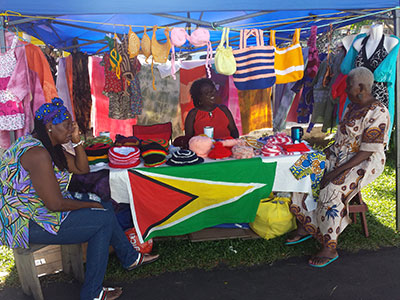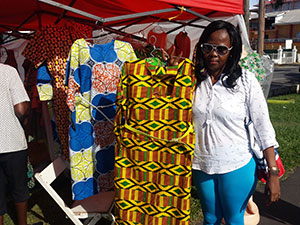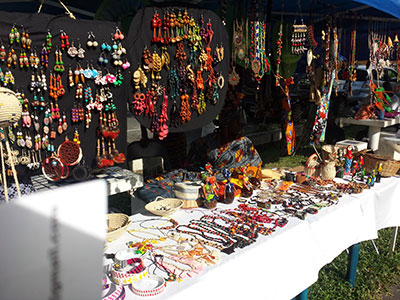AS Guyana observes another Emancipation anniversary, it must not only be a moment of celebration, but also a time of deep reflection, especially among African-Guyanese. There is, of course, much to celebrate. Any people who have been the victims of the most inhumane system in human history and overcame that experience must indeed celebrate that overcoming.
 As we reflect on Emancipation, therefore, we must reflect on the memory of the experience of enslavement. Historical memory is important, for it serves as a reminder of a period in human history that should never be repeated. The brutality of the slavery system has no parallel in history. It reflected an assault on the humanity of the African peoples and inhumanity of the slave-owning classes. African-Guyanese, therefore, are always in the process of recapturing their humanity. This is no easy task, given the fact that some of the social and power relations that informed the system of slavery are still with us today.
As we reflect on Emancipation, therefore, we must reflect on the memory of the experience of enslavement. Historical memory is important, for it serves as a reminder of a period in human history that should never be repeated. The brutality of the slavery system has no parallel in history. It reflected an assault on the humanity of the African peoples and inhumanity of the slave-owning classes. African-Guyanese, therefore, are always in the process of recapturing their humanity. This is no easy task, given the fact that some of the social and power relations that informed the system of slavery are still with us today.
The second area of reflection should be on the very overcoming of slavery. Emancipation among other things, meant overcoming. In that regard, the resistance ethos is central to an understanding and appreciation of African-Guyanese history, culture and identity. There could be no slave oppression without resistance. The many slave rebellions and other forms of resistance are testimony to this spirit of resistance.
A third area of reflection must be on freedom. Emancipation meant freedom. The objective of resistance obviously was freedom. We know that freedom is a process that involves  conscious and unconscious interventions by those to whom freedom is denied. As Brother Bob Marley reminds us, “no chains around my feet, but still I am not free.” The struggle for freedom is always constant and this Emancipation observance must remind us of that continuing journey. It should be noted that when African-Guyanese in 1838 freed themselves, they were ensuring that other groups that subsequently came to Guyana, could come free of chains. The freedom won in 1838 therefore, was freedom not only for African-Guyanese, but for all of Guyana.
conscious and unconscious interventions by those to whom freedom is denied. As Brother Bob Marley reminds us, “no chains around my feet, but still I am not free.” The struggle for freedom is always constant and this Emancipation observance must remind us of that continuing journey. It should be noted that when African-Guyanese in 1838 freed themselves, they were ensuring that other groups that subsequently came to Guyana, could come free of chains. The freedom won in 1838 therefore, was freedom not only for African-Guyanese, but for all of Guyana.
A fourth reflection as we observe emancipation must be in the role of the descendants of enslavement in helping to craft a humane society in Guyana. After the end of slavery in 1838, African-Guyanese transformed Guyana from a slave-trading and inhuman space to one that was worthy of human habitation. In pooling their meagre resources earned during the period of Apprenticeship and buying lands which they turned into villages, they were  striking the first major blow for a humane Guyana.
striking the first major blow for a humane Guyana.
When African-Guyanese created their villages, they were embarking on constructing the country’s modern political economy. They constructed their churches as a reflection of their deep and abiding faith in both their present and future. They created schools next to their churches. Here were people who could barely read and write, but understood the importance of education. They were investing not only in their education, but the education of future generations. They also set about creating the economy by allocating lands for farming. What we know today as our agriculture sector has its origins in the pioneering work in the village economy. Finally, they created their own form of government in the form of village councils, which were geared at administering the day-to-day business of the villages.
The Village Movement therefore was the African-Guyanese gift to Guyana and the rest of the world. It was a unique intervention by people who were barely out of more than two centuries of forced bondage. It reflected a spirit of entrepreneurship and cooperativism. It therefore pioneered what we know today as the private and cooperative sectors. This debunks the notion that African-Guyanese have not contributed to the business ethos of Guyana.
A fifth area of reflection should inevitably be a frank, self-assessment of the current African- Guyanese condition. We must ask ourselves as a collective, whether we have remained true to the promise of Emancipation. Are African-Guyanese as committed to the freedom journey that was reflected in 1838? Are African-Guyanese committed to the economic and political empowerment of the group? Are African-Guyanese committed to the affirmation of Black pride and dignity? Are we as a people, still committed to the spiritual and educational liberation of our people?
These and other questions should form the basis of a collective self-examination aimed at returning the African-Guyanese nation to its roots. So, as we beat our drums and move our dancing feet and wear our African attire and pray to our gods and ancestors, we must do so in a spirit that is geared towards the renewal of our African identity and reason for being.
More of Dr. Hinds ‘writings and commentaries can be found on his YouTube Channel Hinds’ Sight: Dr. David Hinds’ Guyana-Caribbean Politics and on his website www.guyanacaribbeanpolitics.com. Send comments to dhinds6106@aol.com




.png)








